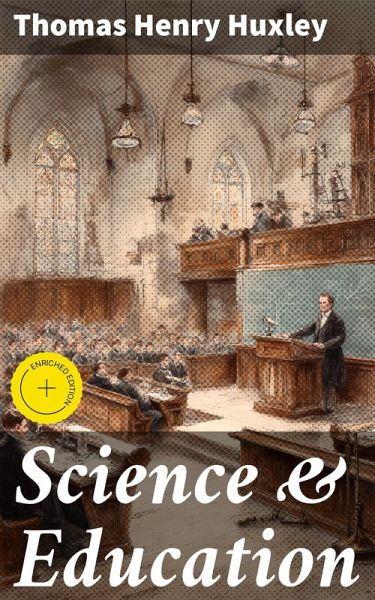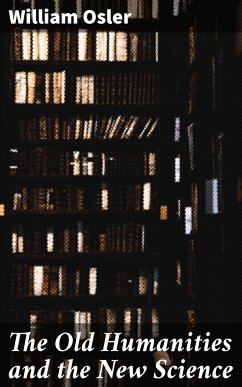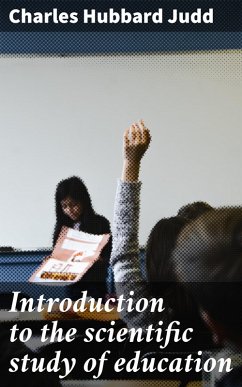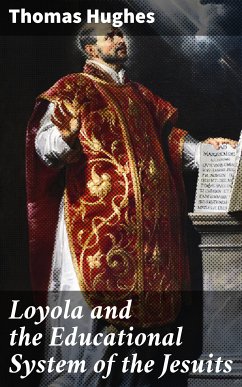
Science & Education (eBook, ePUB)
Enriched edition. Fostering Rational Thought Through Science Education in the Victorian Era
Kommentar: Callahan, Troy / Redaktion: Good Press
Versandkostenfrei!
Sofort per Download lieferbar
0,49 €
inkl. MwSt.
Weitere Ausgaben:

PAYBACK Punkte
0 °P sammeln!
In "Science & Education," Thomas Henry Huxley meticulously explores the intricate relationships between science, education, and society during the late 19th century. Employing a compelling blend of rhetoric and empirical evidence, Huxley advocates for the integration of scientific principles into the educational curriculum, arguing that such knowledge is paramount for the intellectual and moral development of individuals. Through his eloquent prose and lucid explanations, Huxley challenges the prevailing educational paradigms of his time, asserting that a rigorous scientific education is vital...
In "Science & Education," Thomas Henry Huxley meticulously explores the intricate relationships between science, education, and society during the late 19th century. Employing a compelling blend of rhetoric and empirical evidence, Huxley advocates for the integration of scientific principles into the educational curriculum, arguing that such knowledge is paramount for the intellectual and moral development of individuals. Through his eloquent prose and lucid explanations, Huxley challenges the prevailing educational paradigms of his time, asserting that a rigorous scientific education is vital for fostering critical thinking and informed citizenship in a rapidly evolving society. As a prominent biologist and advocate of Darwinian evolution, Huxley earned the title "Darwin's Bulldog" for his defense of Charles Darwin's theories. His extensive background in science, coupled with his commitment to social reform, shaped his views on education as a means of societal advancement. Huxley's engagement with broader philosophical debates of his time, including the intersections of science, morality, and religion, further enriches the text, revealing a thinker deeply concerned with the future of humanity. "Science & Education" is a crucial read for educators, scientists, and anyone interested in the philosophy of education. Huxley's insights into the necessity of scientific literacy remain profoundly relevant today, making this work an essential addition to the literature on educational reform and the societal role of science. In this enriched edition, we have carefully created added value for your reading experience: - A succinct Introduction situates the work's timeless appeal and themes. - The Synopsis outlines the central plot, highlighting key developments without spoiling critical twists. - A detailed Historical Context immerses you in the era's events and influences that shaped the writing. - A thorough Analysis dissects symbols, motifs, and character arcs to unearth underlying meanings. - Reflection questions prompt you to engage personally with the work's messages, connecting them to modern life. - Hand-picked Memorable Quotes shine a spotlight on moments of literary brilliance. - Interactive footnotes clarify unusual references, historical allusions, and archaic phrases for an effortless, more informed read.
Dieser Download kann aus rechtlichen Gründen nur mit Rechnungsadresse in A, B, BG, CY, CZ, D, DK, EW, E, FIN, F, GR, H, IRL, I, LT, L, LR, M, NL, PL, P, R, S, SLO, SK ausgeliefert werden.













